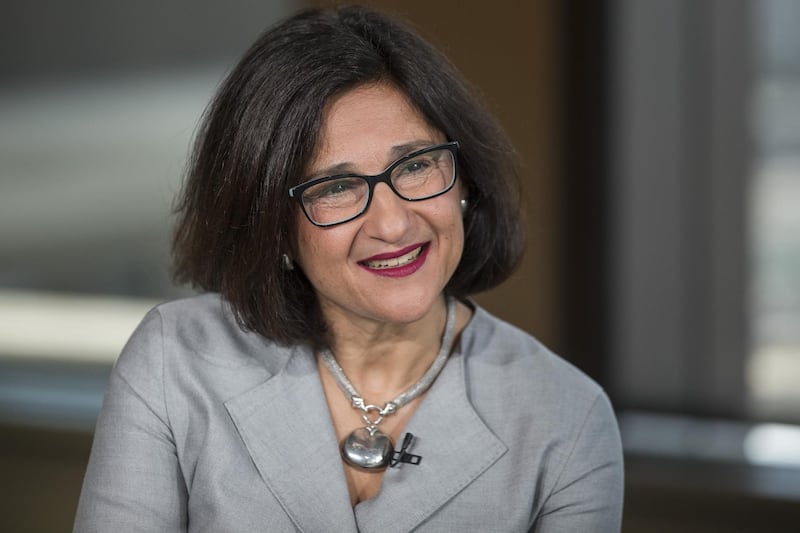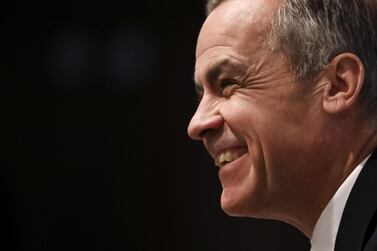An Egyptian-born economist who headed International Monetary Fund’s efforts to develop Arab economies after 2011 has been tipped to become the new head of the UK central bank.
Dame Nemat Shafik, known also as Minouche in the UK, would be the first female governor in the 325-year history of the Bank of England as the government prepares to name a successor to Canadian Mark Carney from February 2020.
At stake is responsibility for guiding the monetary policy of the world's fifth-biggest economy and its huge finance sector through an anticipated volatile period as the UK prepares to leave the European Union.
Ms Shafik, 57, was born in Alexandria, but left Egypt with her family at the age of four to escape the regime of Gamal Abdel Nasser, the charismatic colonel who led a coup against the monarchy in 1952.
"It taught me that you can go from having a lot to having nothing overnight and you can't get too attached to stuff because you can lose it," she told London's Evening Standard newspaper in 2015.
Ms Shafik was permanent secretary of the Department for International Development from March 2008 to 2011 where she was chief executive of the department responsible for all UK development efforts. She said she wanted Britain to keep up its level of overseas development spending, which is currently pegged at 0.7 per cent of the UK's Gross National Income. The target is seen under threat from the new Conservative government as it seeks to focus on making post-Brexit trading deals.
She later joined the World Bank and was its youngest vice president at the age of 36, and responsible for improving the performance of a private sector and infrastructure portfolio of investments worth about $50 billion (Dh183bn). While with the lender in Washington, she warned peers that fear of conflict in the Middle East meant that investors were unwilling to make long-term commitments to the region.
Later as deputy managing director, Ms Shafik was responsible for country work in Europe and the Middle East, the IMF’s $1bn administrative budget, human resources for its 3,000 staff and the lender’s training and technical assistance for policymakers around the world.
In 2014 she joined the BoE as deputy governor overseeing markets and banking under Mr Carney – only the second woman to do so – and then went on to become director of the London School of Economics in 2017.
The Conservative government under Prime Minister Boris Johnson said it would name a new governor shortly after national elections held last week if it was returned to power. After a sweeping victory, Mr Johnson has said that his priority would be pushing through Brexit – which will present challenges to the independent BoE.
BoE warns policymakers the UK could see GDP cut by 5.5 per cent if the country left the European Union without a deal on future political and trading relations in place.
Ms Shafik's challengers include another woman, Shriti Vadera, who is chairwoman of Santander UK, one of Britain’s biggest banks. She was a government minister during the financial crisis when she helped to devise a major rescue plan to keep high street banks in business.
The man to beat was identified as Andrew Bailey, a former central bank deputy governor who headed the main financial regulator, the Financial Conduct Authority. His stock has now fallen after politicians criticised the FCA over its response to a series of financial scandals.
A former US Federal Reserve official, Kevin Warsh, 49, who had a key role in its response to the financial crisis is also among the frontrunners. A number of internal candidates are also tipped to be in the running.
Ms Shafik earned her bachelors in economics and politics from the University of Massachusetts-Amherst, her masters in science in economics from the London School of Economics and a doctor of philosophy in economics from St Antony's College, Oxford University.







